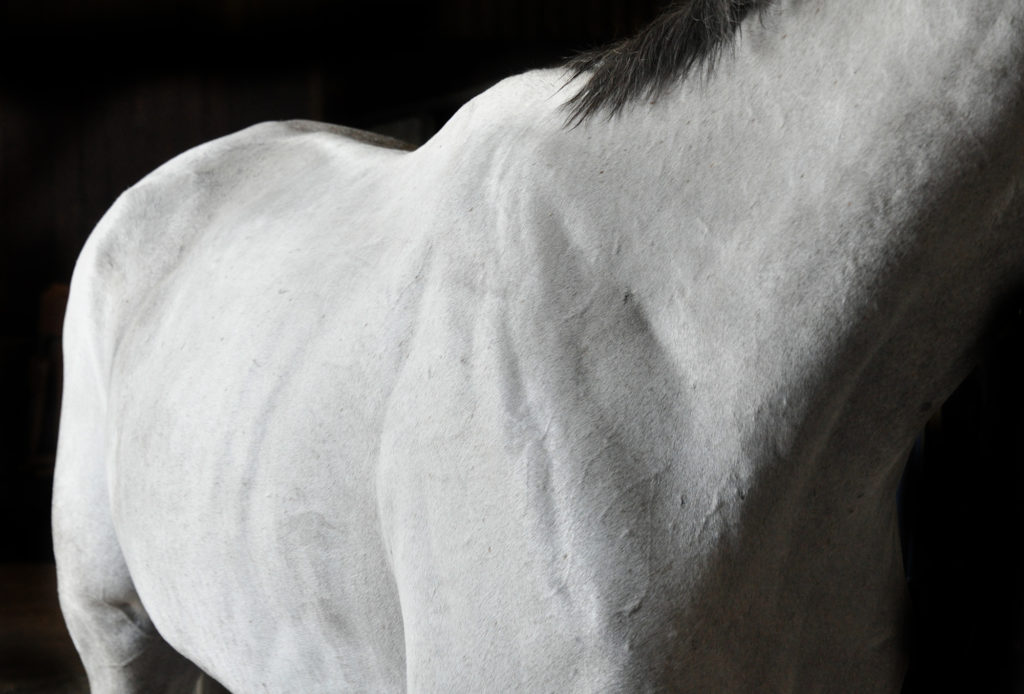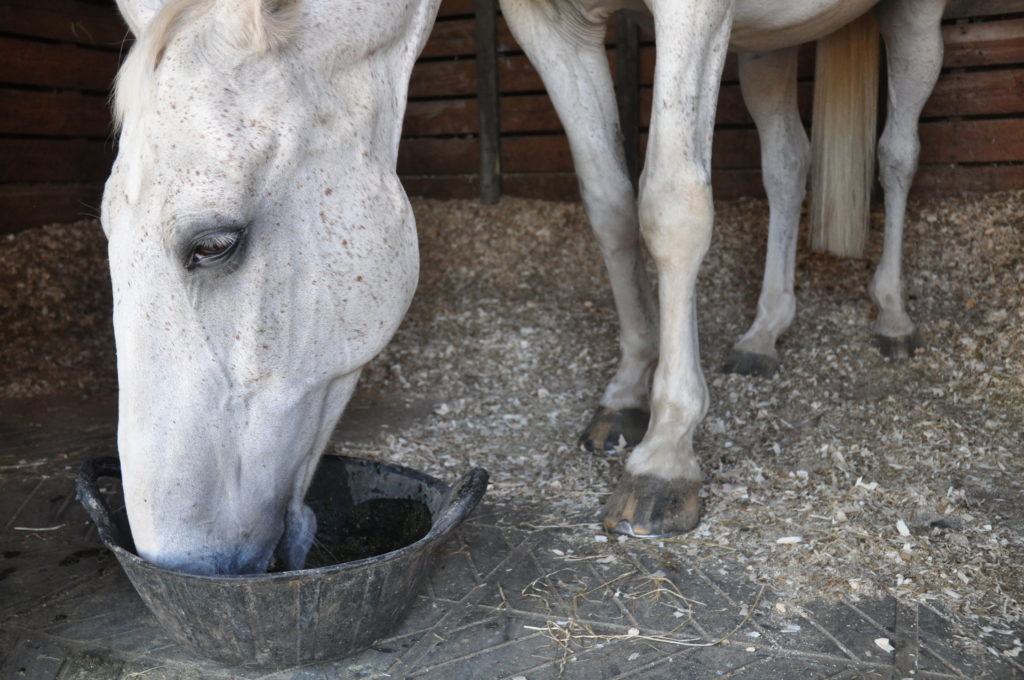Older Horses and Ponies
The most commonly asked questions relating to veteran horses on the Dengie Feedline are weight loss, what to feed a horse with PPID and alternatives to forage for those with poor teeth? This is our advice as to how best to manage these issues.
Weight loss in veteran horses
If your veteran horse starts to lose weight it is important to try to establish the root cause and not just assume it is due to “old age” as this will help determine the best course of action for managing the situation. Many senior mixes and cubes have higher levels of starch than would be suitable for some horses and ponies, especially those with a history of laminitis. Protein is a nutrient that receives lots of attention when it comes to maintaining top line and muscle mass in the senior horse. Remember that the quality of the protein is just as important as quantity. Alfalfa and soya are rich in lysine and methionine, the essential amino acids which have to be supplied in the diet, and both are commonly used in feeds for older horses. Alfa-A Oil is Dengie’s highest calorie fibre feed and is based on pure alfalfa with a high oil coating and so has a calorie level equivalent to a conditioning mix or cube but without the high starch levels. This makes Alfa-A Oil a suitable feed for older horses that need to gain weight but that require a low sugar/starch ration. It can also be fed alongside Dengie Alfa-Beet if extra condition is needed.
Another element to consider is that the population of bugs that live in the horse’s gut are more vulnerable to disruption in older horses and so if your horse has had loose droppings or a history of colic, it is worth trying a digestive aid supplement. Live yeast or prebiotics are both approved for use in horses and help to create the right conditions in the gut for the fibre-digesting, beneficial bacteria to thrive. This usually helps the horse to get more from the fibre they are fed which aids their weight and condition too.

What to feed a horse with PPID
The underlying endocrine problem of PPID (Cushing’s Disease) can increase the risk of laminitis in horses and ponies. Those that have Equine Metabolic Syndrome (EMS), as well as PPID are at an even greater risk of laminitis. The trigger that ultimately results in the clinical signs of laminitis is often diet-related and is usually due to excessive consumption of sugar and starch. Therefore, when looking for suitable feeds for horses and ponies diagnosed with PPID, the advice is to choose products that are low in sugar and starch. The recommendation is that the non-structural carbohydrate (NSC) content, which is a combination of water-soluble carbohydrates (WSC, or ‘sugar’) and starch, is less than 10-12% when combined.
At BEVA Congress in 2021, the use of medications for PPID such as pergolide was discussed. You may be interested to know that there is no evidence that pergolide improves insulin sensitivity or therefore reducing the risk of laminitis. Another really useful piece of advice was that pergolide shouldn’t be left in feeds made up to be fed at a later time. As soon as it is exposed to air and/or water in the feed, the pergolide will deteriorate and so may therefore be less effective when it is consumed.

Alternatives for horses that struggle to chew long forage
When horses are stabled hay and haylage are usually their main fibre source. The long length of these forages can sometimes cause a veteran horse problems, as their teeth become less effective – they can spend hours chewing only to create balls of forage that they then drop (quid). The reduction in forage intake can result in weight loss or if too much partially chewed food passes further into the digestive system the risk of impaction colic increases significantly. If your veteran has lost weight in previous winters then taking action early is key to try and avoid it happening again – it’s a lot easier to maintain weight in winter conditions than to promote weight gain!
In a trial comparing the amount of 3 different types of fibre (hay, Dengie Hi-Fi Senior and Dengie Alfa-Beet) horses with poor dentition were able to consume within a certain time period, the reduction in intake was most significant for hay. Those with poor teeth consumed up to two-thirds less hay in the same time period as those with no dental issues. The smallest difference was with the soaked product and a slight reduction was seen with the short chop product. Some of those with dental issues declined to eat the hay completely, whereas the soaked product was not refused by any of the horses.
Dengie’s range of fibre feeds, both short chopped and soaked, are all sympathetic to the horse’s digestive system and several of the products can be used as partial or full hay replacers for veteran horses to overcome the challenges of poor dentition. Hi-Fi Lite, Hi-Fi Senior and Pure Grass can all be used as a full hay replacer by simply replacing weight for weight with the hay. All hay replacers can be fed from the floor or in a large bucket rather than a net. However, like a haynet, larger quantities of these hay replacers can be left with your horse for them to “graze” on over a longer period of time.
The fibre particles in soaked products such as Dengie Alfa-Beet tend to be ground much smaller which makes them even easier to chew and improves digestibility too. If a horse can manage some short chop fibre, then it is beneficial to feed some alongside the soaked feeds to help increase chew time but only if it doesn’t cause the horse to quid more.



